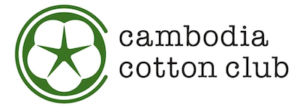The following information from publicly available government and corporate information that can be found on the Internet was found.
It is cultivated at two locations in Sendai City, Miyagi Prefecture. The total area is 1.6 hectares. This project has been selected by the Ministry of Economy, Trade and Industry (METI) for the "Subsidy for Measures to Revitalize Regional Economy and Industry (Practical Application Research Project for Advanced Agriculture-Commerce-Industry Collaboration). The amount of the subsidy is approximately 40 million to 300 million yen.
In the case of cotton cultivation, the highest yield per unit (unit yield = yield) in the world is 4 tons per hectare in the United States. This is the case when various techniques and chemicals are used to increase yield, such as genetically modified seeds, chemical fertilizers, pesticides, and hormones.
Assuming that Tohoku cotton has the highest yield in the world, the yield is 6.4 tons. Since the seeds account for approximately two-thirds of the cotton (cotton balls), removing the seeds results in approximately 2 tons of cotton fiber. In addition, losses are incurred during the spinning process.For example, cotton that falls to the floor or is left empty during the seed extraction process or spinning process occurs.
Such an assumption would not apply to Tohoku Cotton. This is because the pesticides and hormones required for cotton cultivation must be approved by the Ministry of Agriculture, Forestry and Fisheries.
As a matter of fact, the 2012 Tohoku Cotton Project press release states that only about 73 kg of Tohoku cotton was harvested.
After ginning, which is the process of removing the seeds, 24 kilograms should be the cotton fiber used in the production of the product.
What kind of seeds the Tohoku Cotton Project has been using was not disclosed on the website of the company in charge of importing the seeds, Toyo Cotton Flower Co.
As for genetically modified seeds in Japan, Monsanto Japan Ltd. obtained approval for genetically modified cotton in 2003. Bayer CropScience Corporation (2006) and Dow Chemical Japan Ltd. (2006) have received approval from the Ministry of Agriculture, Forestry and Fisheries. Currently, 23 types of genetically modified seed cotton have been approved in Japan.
As an example, we found a denim product as a product using Tohoku cotton. The blended ratio was indicated on the sales website, so I will copy it as it is.
Regular retail price: 11,880 yen (tax included) [Material] 100% cotton (5% Tohoku cotton, 26% Ugandan organic cotton, 69% Supima cotton)
Only 5% of Tohoku cotton is used.
I did not know the total amount of Tohoku cotton used in sample production or in the production of our products.
( to be continued )
P.S. Supima cotton is produced in the United States.
